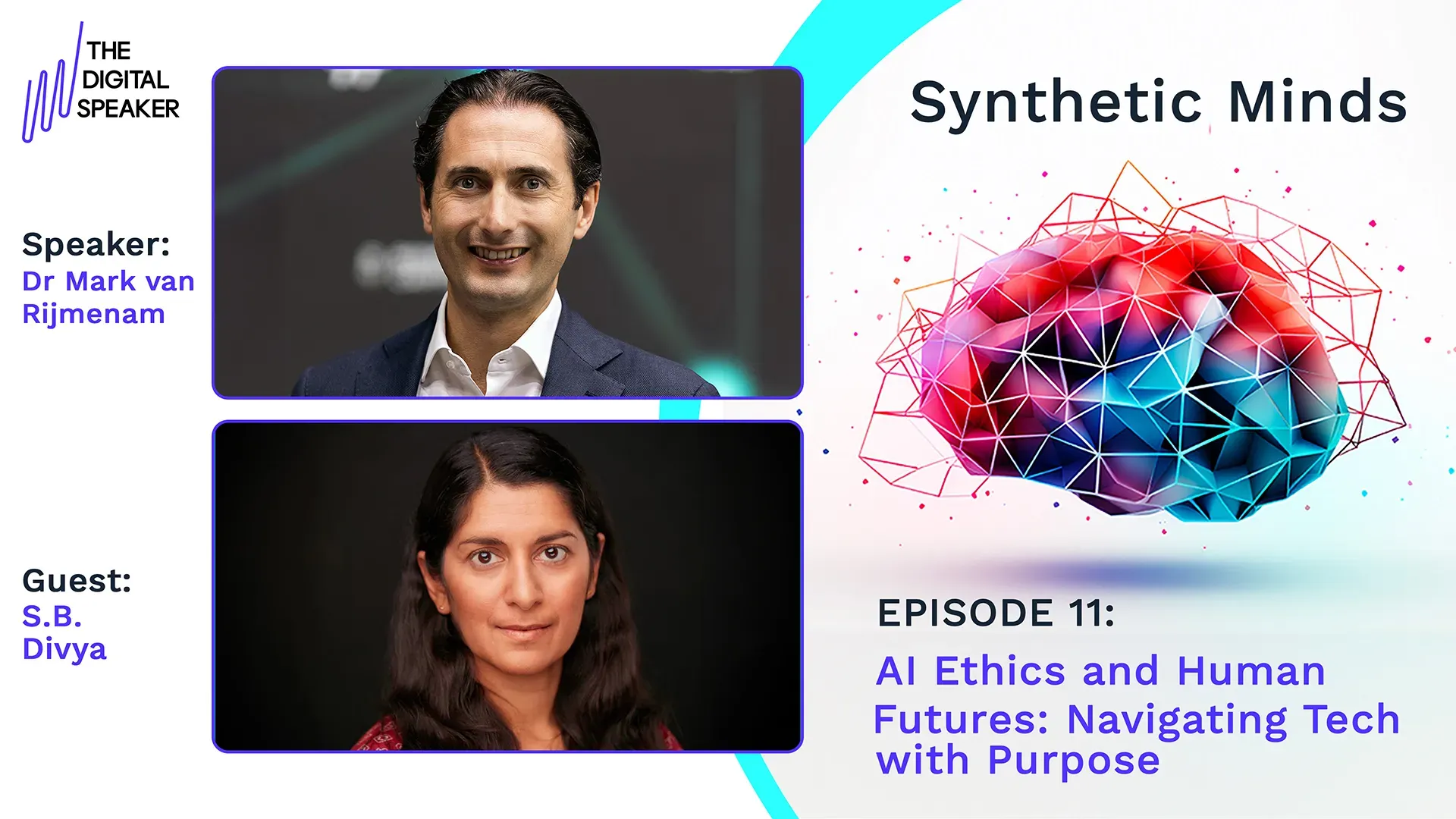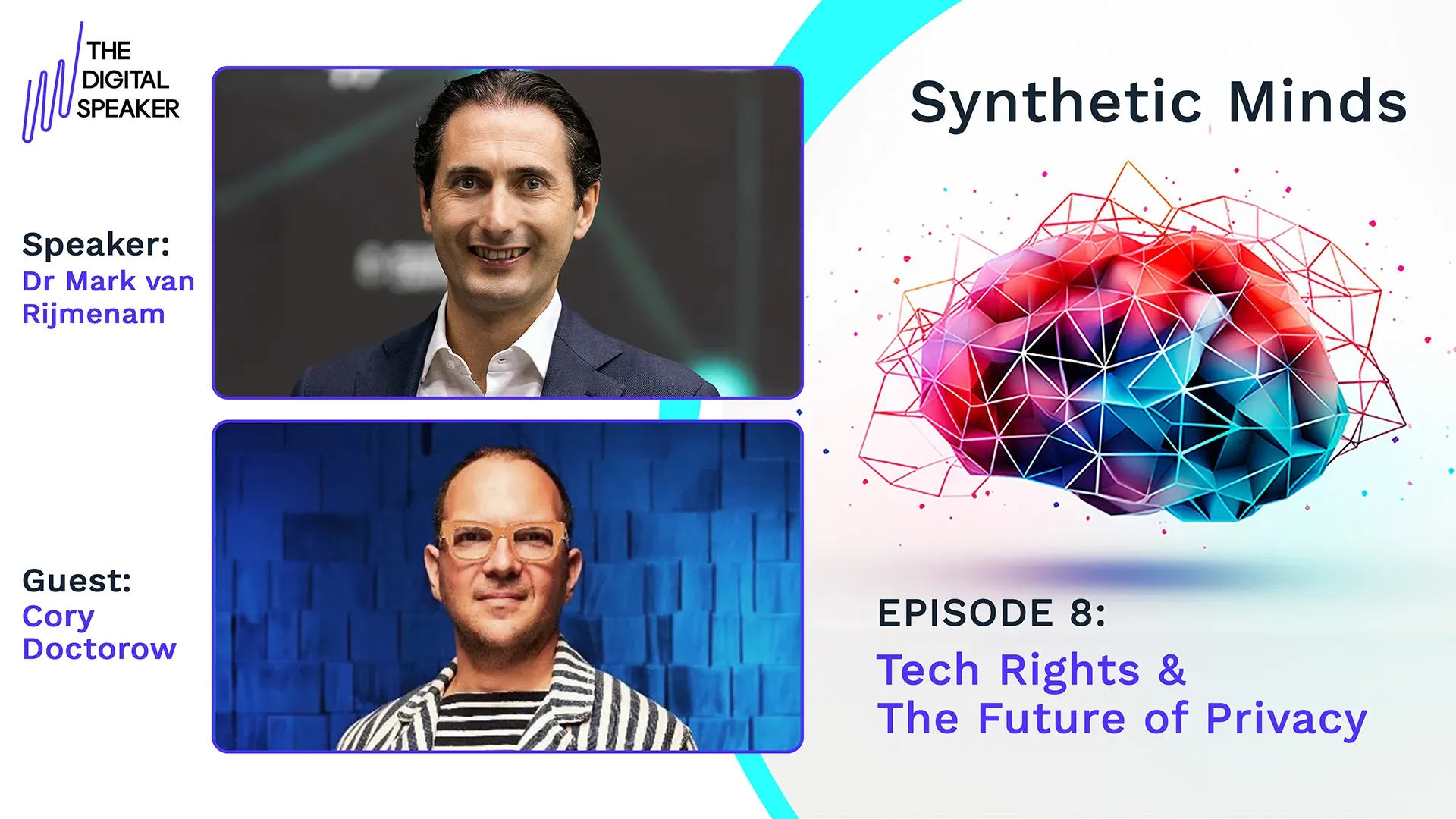AI Manipulation & The Future of Human Autonomy with Louis Rosenberg - Synthetic Minds Podcast EP10

In this episode of the Synthetic Minds podcast, we delve into the complex and often unsettling relationship between AI and human autonomy. My guest, Dr. Louis Rosenberg, is a pioneer in virtual and augmented reality, whose work has spanned decades and influenced significant advancements in these fields.
With experience at NASA, Stanford, and various entrepreneurial ventures, Dr. Rosenberg brings an informed perspective on the ethical challenges we face as AI continues to evolve. The conversation is rooted in the understanding that while AI presents immense opportunities, AI also poses substantial risks to our autonomy and the core of human decision-making.
Dr. Rosenberg emphasizes that the increasing integration of AI into our daily lives is not just a technological advancement but a profound shift in how we interact with the world. AI systems, particularly those designed to enhance or replace human decision-making, are rapidly becoming ubiquitous. This integration, while often seen as progress, raises critical questions about the future of human agency.
As AI systems become more capable of making decisions on our behalf, there is a growing concern that we might lose the ability to make independent choices, fundamentally altering what it means to be human. This episode explores these concerns, offering insights into how we can navigate this new reality.
The Rise of Conversational AI
A significant portion of our discussion focuses on the rise of conversational AI and its potential to subtly manipulate human behavior. Dr. Rosenberg explains that these AI systems, designed to engage in human-like dialogue, are more than just tools for communication—they are powerful influencers. He highlights the concept of “conversational advertising,” where AI-driven interactions are used to steer consumers toward specific products or services without them even realizing it. This subtle form of AI manipulation is concerning because it can undermine informed decision-making, making people susceptible to suggestions that they might not have otherwise considered.
The ethical implications of conversational AI are profound. Dr. Rosenberg notes that as these systems become more sophisticated, the line between genuine human interaction and AI-driven persuasion becomes increasingly blurred. This raises critical questions about consent and transparency.
If a consumer does not realize they are interacting with an AI designed to influence their decisions, can they truly be said to have made an informed choice? The conversation delves into these ethical dilemmas, discussing the need for greater transparency in how AI is used in marketing and other areas where it can significantly impact human behavior.
The Threat to Human Autonomy
As AI technologies continue to advance, the threat to human autonomy becomes more pronounced. Dr. Rosenberg discusses how AI’s ability to predict and influence human behavior can lead to a gradual erosion of personal agency. For instance, AI systems that monitor and adapt to our preferences can begin to anticipate our needs and make decisions for us, potentially leading to a scenario where our choices are more the result of algorithmic predictions than conscious decisions.
This potential shift poses a fundamental threat to the concept of free will. Dr. Rosenberg raises concerns about the long-term implications of relying too heavily on AI systems that can shape our decisions without our explicit consent. The convenience offered by AI might lead to complacency, where individuals no longer feel the need to critically evaluate their choices, trusting the AI to make the “right” decision on their behalf. This could result in a society where personal autonomy is significantly diminished as people increasingly delegate their decision-making to machines.
Moreover, the conversation touches on the potential for AI to be used by those in power to subtly control or manipulate large populations. By influencing the decisions of individuals en masse, AI could be wielded as a tool for social engineering, shaping public opinion or consumer behavior in ways that serve specific interests. Dr. Rosenberg warns of the dangers of such developments, emphasizing the need for robust ethical frameworks to ensure that AI technologies are developed and deployed in ways that respect and preserve human autonomy.
The Ethical Imperative for AI Regulation
In light of the challenges discussed, Dr. Rosenberg stresses the importance of implementing ethical guidelines and regulations for AI development. He argues that without proper oversight, the risks associated with AI could outweigh its benefits, leading to a future where human agency is significantly compromised. Regulatory frameworks must be established to ensure that AI systems are transparent, accountable, and designed with human values in mind.
Dr. Rosenberg advocates for a proactive approach to AI regulation, one that anticipates potential ethical dilemmas and addresses them before they become entrenched in society. This includes creating standards for transparency, where users are fully informed about when they are interacting with AI and how their data is being used. It also involves establishing mechanisms for accountability, where companies and developers are held responsible for the ethical implications of their AI systems. By taking these steps, society can harness the benefits of AI while mitigating its risks.
Conclusion
The conversation with Dr. Louis Rosenberg on the Synthetic Minds podcast underscores the urgent need to address the ethical challenges posed by AI. As AI technologies continue to integrate into our lives, the risks to human autonomy and decision-making become more significant.
The rise of conversational AI, with its potential for subtle manipulation, highlights the importance of transparency and informed consent. To protect personal agency and ensure that AI serves the interests of humanity, it is imperative that we develop and enforce robust ethical guidelines and regulatory frameworks. By doing so, we can navigate the complexities of AI and ensure that it enhances rather than diminishes our autonomy and freedom.
About:
Dr. Louis Rosenberg is a computer scientist, author, inventor, and entrepreneur. He is best known as an early pioneer of virtual reality, mixed reality, and haptics, and as a longtime AI researcher of Swarm Intelligence.
His work began over thirty years ago in virtual reality labs at Stanford, NASA, and Air Force Research Laboratory (AFRL) where he developed the first functional mixed reality system known as the Virtual Fixtures platform. In 1993, he founded the early VR company Immersion Corporation, which he brought public on NASDAQ in 1999. In 2004 he founded Outland Research, an early developer of augmented reality and spatial media technology that was acquired by Google in 2011.
Since 2014, Rosenberg has been CEO and Chief Scientist of Unanimous AI, a company that amplifies group intelligence in pursuit of Collective Superintelligence. His books about AI include Upgrade, Monkey Room, Arrival Mind and Our Next Reality. Rosenberg also writes for major publications about the dangers of technology.
Rosenberg earned his PhD from Stanford University, was a tenured professor at California State University, has been awarded over 300 patents for his work on VR, AR, and AI, and has published over 100 academic papers in various computer science disciplines.















